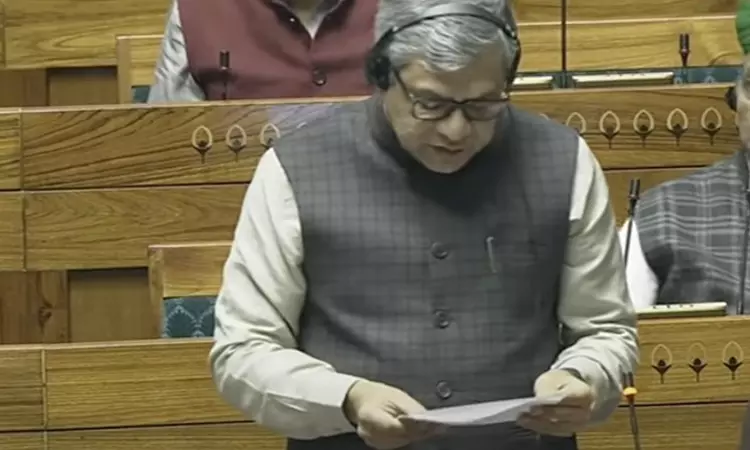Telecommunications Bill 2023 Introduced In Lok Sabha With Money Bill Classification
Awstika Das
18 Dec 2023 7:50 PM IST

Next Story
18 Dec 2023 7:50 PM IST
On the eleventh day of the Winter Session, the Telecommunications Bill, 2023 was introduced in the Lok Sabha on Monday (December 18), after President Droupadi Murmu recommended its introduction under Article 117(1) of the Constitution of India yesterday. This bill - tabled by IT Minister Ashwini Vaishnaw - aims to usher in comprehensive regulations for the telecommunications sector....
